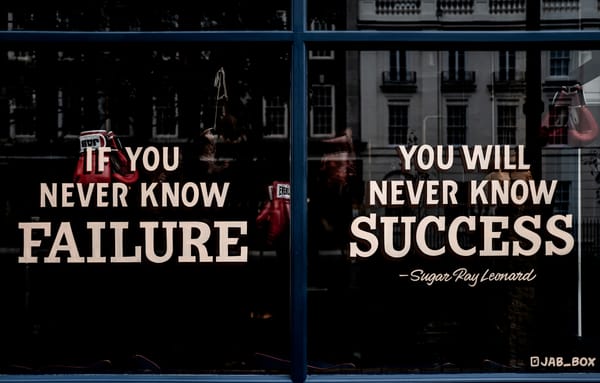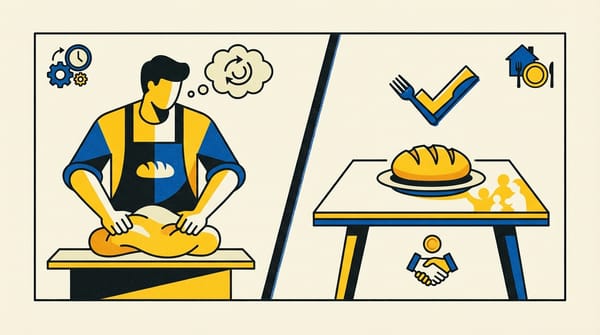What to do when faced with a crisis
Descubre cómo enfrentar una crisis con estrategias efectivas. Aprende a evaluar tu situación y toma decisiones claras para avanzar.

Simple and complex about what a crisis is
The moment you realize you don't know what to do is a simple description of a crisis. A crisis is a turning point in any scenario after which all your planned actions, strategies, and approaches stop working, and you haven't yet found new ones that would work. Essentially, a crisis is the point after which you start experiencing uncertainty.
Since you don't know what to do in a state of uncertainty, the right first step is to start thinking logically or structurally. The first important thing to do when facing uncertainty is to find something certain within it. For example, our status. We can only change what we can specifically measure. Therefore, even if you don't know what will happen next and how events will unfold, you can always accurately determine where you are right now, in what position, what works for you, and what doesn't.
Action Strategy
Determine the Status
Point #1 — accurately determine the status. Don't think about strategy yet, don't think about development, think about where you are right now and fix this moment. It's important to understand that status should be assessed either by qualitative or quantitative indicators, but not by your feelings and emotions. Because in moments of uncertainty or crisis, your emotions will mostly be negative and greatly exaggerated. Therefore, if we rely only on feelings, we will be far from an objective picture. It's important to operate with quantitative and qualitative specific indicators.
Change Evaluation to Observation
Point #2 in dealing with uncertainty is to change evaluation to observation. This is closely related to thinking and the brain's reactions to uncertainty. Sorry to keep mentioning it, but it seems to be the main obstacle to ecological productivity and success—the brain's natural reaction to uncertainty is fear. For the brain, everything unclear is stress. It's critically important for the brain to understand where we are, what we have, and what will happen tomorrow. As soon as we start evaluating the situation and realize that we have nothing to rely on, we don't understand the next step. For the brain, this is stress. And in stress, we revert to our basic instincts: freeze, fight, or flee. The ability to think broadly and creatively disappears.
In conditions of uncertainty, your feelings are a bad strategy. Your feelings are always based on previous experience. We can feel something only if we have encountered it before. In conditions of uncertainty, we may feel fear because we don't know what will happen. Since the strategy is unclear and we don't know what to do or how to cope, your experience is not applicable. This means relying on your feelings is the wrong strategy.
As soon as we change evaluation to observation, we accept the fact that we are scared because of uncertainty and gain the ability to look at the situation more broadly. We understand that yes, at this point I feel very bad, I don't know what to do. But we suddenly start noticing different opportunities.
For example, if our reaction to uncertainty is fear, we close ourselves off and don't want to act. If we change evaluation to observation, we start looking for unconventional or unfamiliar ways to solve the problem. We start thinking about acting differently than before.
Therefore, instead of thinking about what will or won't happen to us, it's important to understand what is happening right now and what we are going to do about it. Try to avoid the traps of naivety or catastrophic thinking, where it's all or nothing.
For example, when you call someone three times in a row in a panic and no one answers, it doesn't necessarily mean that you are not important, blocked, or ignored. Perhaps the person is taking a shower. Or, if you try to start something new several times and it doesn't work, it doesn't mean that nothing will work and everything is lost. Perhaps you need to analyze and change your approach. This is how the trap of catastrophizing works. The trap of naivety is when you understand that without your active participation the situation won't change, but you naively continue to believe that everything will work out by itself. It will definitely work out, but it's not a fact that you will like it.
Evaluate Your Ideas
One of the main skills during a period of uncertainty is the ability to evaluate your ideas, not to bounce from one extreme to another. What does it mean to evaluate your ideas? Always before starting something, proposing your idea, or putting it into action, ask yourself a question.
Why do I think this will work? What grounds do I have to believe that this will lead me to my goal? Could there be a more effective idea and how can I find out about it? On what specific data do I base my choice of this idea from many others?
Critical thinking is one of the best tools during a period of uncertainty. It's naive to believe that something happens, gets fixed, is built, changes, or occurs without your participation. This is definitely not a winning strategy. During a period of uncertainty, it's important not to shift responsibility to others, but to take full authorship for every decision made.
Seek Advice but Take Authorship for Every Decision Made
In a crisis, it's normal for us to seek advice or support from others. Humans are social beings, and the scarier it is for us, the more important it is to have other people around. We hear them, follow their advice, and this helps to feel more confident in our actions. But the fact that someone gave you advice does not give you the right to shift the responsibility for the final result onto them. You make the decision, you are the author of the action. Therefore, it's important to learn to take authorship for every decision made. And remember that not making a decision is also a decision. Inaction is also action.
If you don't analyze and think through someone's advice, but prefer to blindly follow it, later blaming the advisors for the result, you will never form your own experience and will always be a tool for testing someone else's hypothesis.
You don't know what you don't know
Remember, the fact that you don't know something doesn't mean it doesn't work. We can perceive a situation, circumstances, or events only if we can connect them with our previous experience. We perceive the current situation by combining it with the experience we already have. During a period of uncertainty, we will have a lot of new experiences that we haven't had before. Sometimes we call things unrealistic, absurd, or ineffective simply because we haven't had such actions in our previous experience. It's important to understand that we will be doing many things for the first time.
Be Open to New Solutions
Instead of blocking new opportunities just because we haven't heard of them before or they weren't in our experience, we need to learn to look more broadly and analyze more deeply what is offered to us as new. The desire to act quickly is the desire to get out of uncertainty faster. But learning, analyzing, and thinking is also action. In uncertainty, it's not scary to not know something, it's scary to not want or not be able to learn.
If you take two people: one who knows a lot but doesn't know how or doesn't like to learn, and another who knows less but knows how and loves to learn, in the normal world the one who knows a lot will win. But in conditions of uncertainty, where the speed and frequency of changes make it impossible to be constantly effective with the same knowledge, the one who knows how and loves to learn will win. During a period of uncertainty, even if you don't know something, it's not as scary as your unwillingness or inability to learn. It's important to remember that critical thinking, analysis, and learning are also actions, even if in uncertainty we don't consider them as such. It's very important to take time for analysis, critical thinking, and learning instead of acting quickly. This is more beneficial than thoughtless practical action.
Be Confident in Yourself and Reassure Yourself
And most importantly, during a period of uncertainty, you may be frightened by the thought that you are too small to cope with this. Unlike the normal world, where the strongest wins, during a period of uncertainty the one who is more flexible, adaptive, and capable of change wins. Therefore, if you think you are too small to cope, then most likely this is your time to win.
As always, I invite you to share your opinion in the comments
With love 😽 🤗 😘
K




